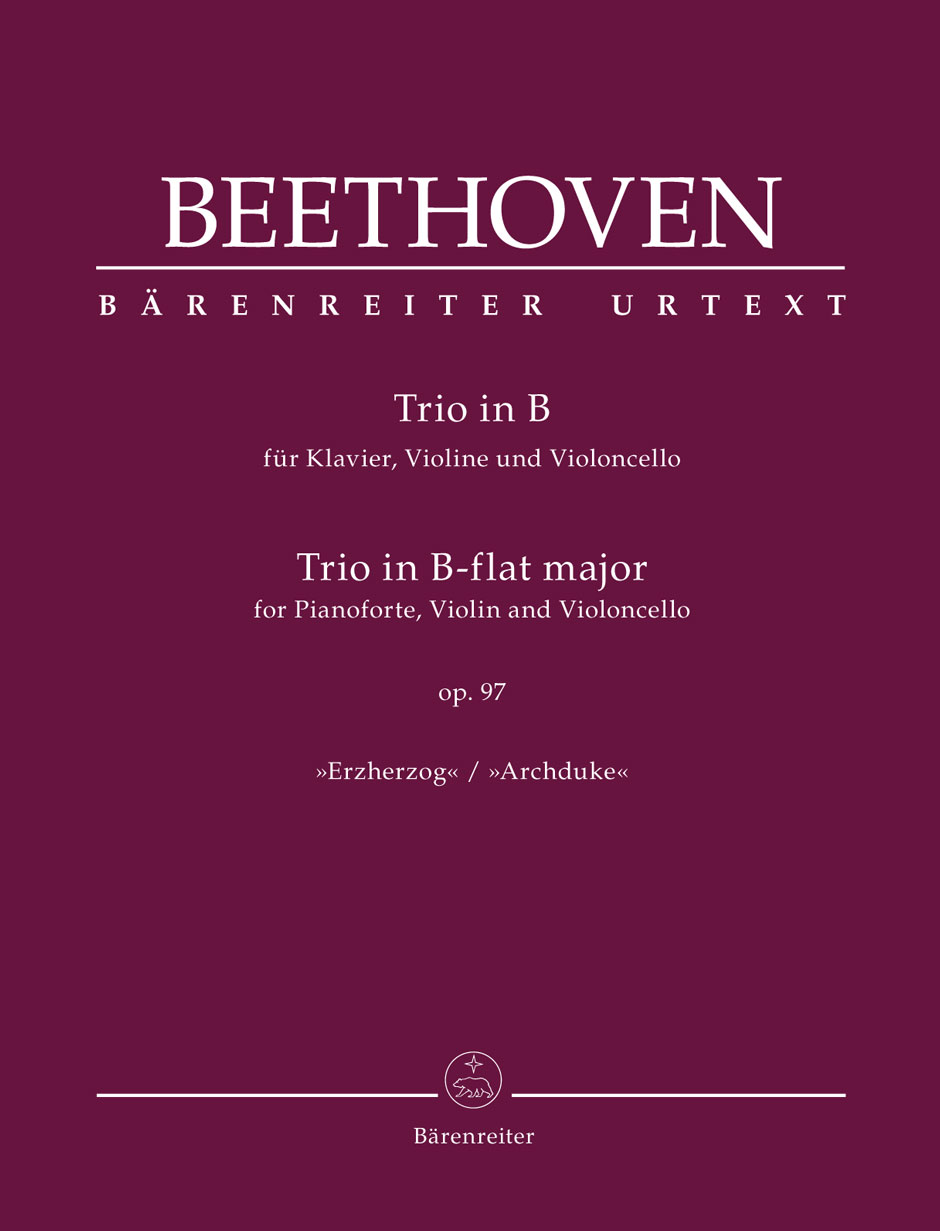Nuotteja ja kirjoja kaupassa 58 719 kappaletta ● Erikoistuotteet tilauksesta
Open Mon-Fri 11-18 | tel. +358 20 7070 443 | Musiikkitalo, Mannerheimintie 13a B, 00100 Helsinki |ostinato@ostinato.fi
Beethoven
Trio B op 97 (Archduke)(vl,vc,pf)
Price: 38,00
€
In stock
- Urtext edition of Beethoven’s most famous piano trio
- Detailed introduction (Eng/Ger), editor’s foreword (Eng/Ger) and Critical Commentary (Eng)
By the time Beethoven completed the “Archduke” Trio in 1811 he had been working on it for several years. In April 1814 he could finally give the work its première together with Ignaz Schuppanzigh and Joseph Linke, this being Beethoven’s last public appearance as a pianist. He dedicated the piece to his friend, pupil and patron, Archduke Rudolph of Austria. Today it numbers among his most celebrated pieces of chamber music, not least because of its remarkable melodiousness – a feature typical of Beethoven’s music from these years – and its spacious formal design.
Jonathan Del Mar’s new critical edition of the Trio draws not only on early prints but also on various handwritten sources. A detailed introduction by Misha Donat is devoted to the work’s historical contexts.
Bärenreiter Urtext
- Detailed introduction (Eng/Ger), editor’s foreword (Eng/Ger) and Critical Commentary (Eng)
By the time Beethoven completed the “Archduke” Trio in 1811 he had been working on it for several years. In April 1814 he could finally give the work its première together with Ignaz Schuppanzigh and Joseph Linke, this being Beethoven’s last public appearance as a pianist. He dedicated the piece to his friend, pupil and patron, Archduke Rudolph of Austria. Today it numbers among his most celebrated pieces of chamber music, not least because of its remarkable melodiousness – a feature typical of Beethoven’s music from these years – and its spacious formal design.
Jonathan Del Mar’s new critical edition of the Trio draws not only on early prints but also on various handwritten sources. A detailed introduction by Misha Donat is devoted to the work’s historical contexts.
Bärenreiter Urtext
